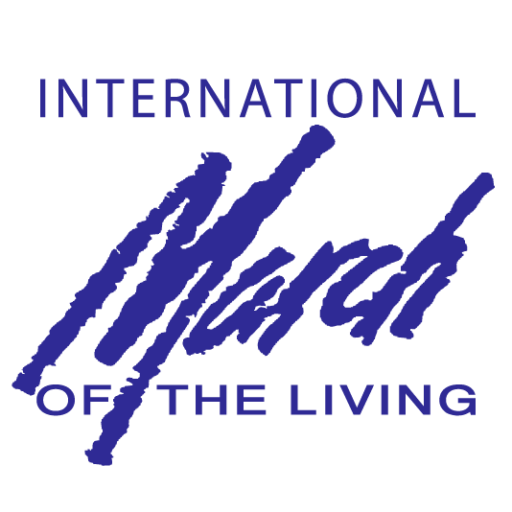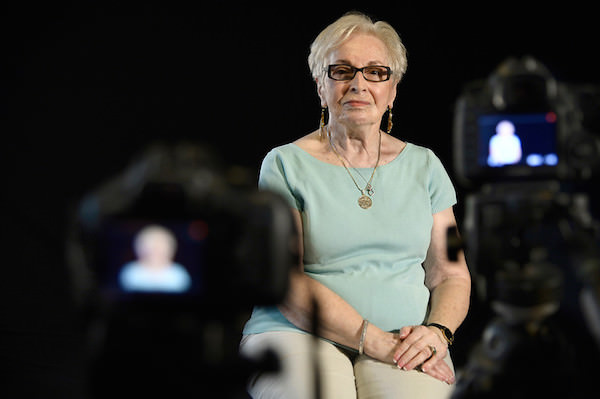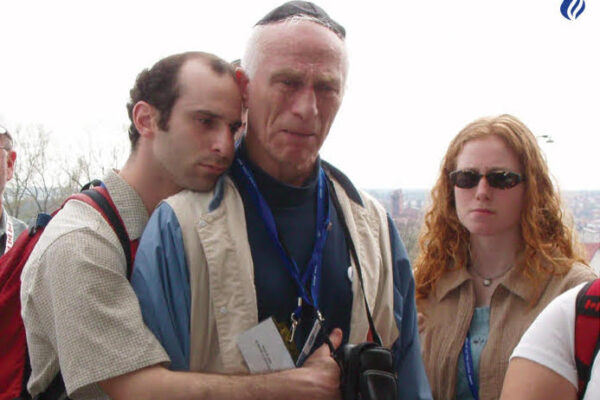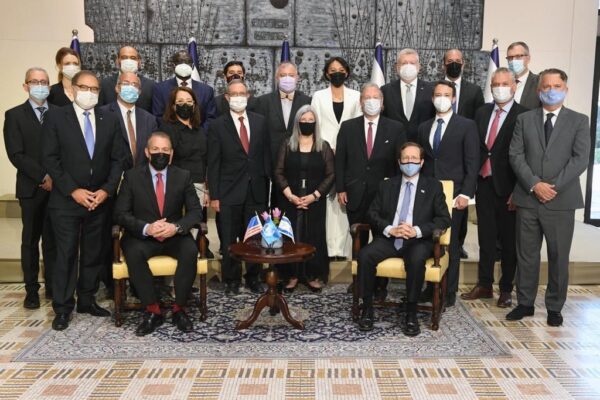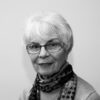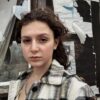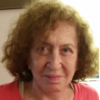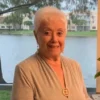
Students interviewed Holocaust survivor Eva Trenk, at the Los Angeles Museum of the Holocaust as part of a summer high school student program at the museum, “Voices of History.” Los Angeles, CA 7/20/2017 Photo by John McCoy/Los Angeles Daily News (SCNG)

Students Claire Benjamin and Julia Coburn get assistance from film maker Tamara Rosenfeld and production assistant Dora Schoenberg before they shoot the interview. Students interviewed Holocaust survivor Eva Trenk, at the Los Angeles Museum of the Holocaust as part of a summer high school student program at the museum, “Voices of History.” Los Angeles, CA 7/20/2017 Photo by John McCoy/Los Angeles Daily News (SCNG)

Noah Benjamin uses a clapperboard to mark the start of video and sound. Students interviewed Holocaust survivor Eva Trenk, at the Los Angeles Museum of the Holocaust as part of a summer high school student program at the museum, “Voices of History.” Los Angeles, CA 7/20/2017 Photo by John McCoy/Los Angeles Daily News (SCNG)
“We had to pack some suitcases, and the buses took us to a different location, and from there we went to the camp,” Trenk, 79, recalled Thursday. “There was no food. There was nowhere to sleep. It was very hard.”
Camp Zilina was a forced labor camp, and Trenk, just 4 years old, was separated from her mother and grandmother. Auschwitz wasn’t far away.
Today, Trenk lives in Valley Village. She recounted her life story Thursday to a group of high school students at the Los Angeles Museum of the Holocaust as part of the institution’s Voices of History program. Students spend two weeks in the summer workshop learning about the Holocaust and producing music, theater, art and film based on what they learn.
On Thursday, the students set up lights and manned cameras, and one student interviewed Trenk. Though Trenk has spoken to school groups about her experience, this would be the first time her story was recorded and archived.
“Do you remember how life changed when Hitler came to power?” Claire Benjamin asked Trenk.
“Everything changed. Life changed completely,” Trenk said.
Noah Benjamin, about to start his junior year at Oakwood School in Sherman Oaks along with his sister Claire, was a cameraman on Thursday.
“It’s really important to me to preserve this memory (of) these Holocaust survivors, make sure that it’s not lost or forgotten,” he said.
“When you have an actual person here, they can tell you their first-hand experience of the atrocities of the World War and the Holocaust,” he added. “It’s like a personal story rather than a line in a textbook.”
“They’re really making history,” Rachel Fidler, coordinator of the Voices of History program at the museum, said of the students’ film project. “Meeting a Holocaust survivor makes the history more relatable.”Trenk’s World War II experience didn’t stop at Camp Zilina. Her resourceful grandmother had smuggled some gold into the camp and used it to bribe camp guards to help the family escape. They fled to the home of a Christian family and lived under fictitious names. Trenk became “Margaret.”
After Germans took Trenk’s mother away for two weeks — what they did with her in that time, she never told Trenk — Trenk’s mother decided staying with the family was too dangerous. So they ran again, to nearby mountains, where they hid with other Jews. Again, they were discovered. Germans took them to another work camp, where they stayed until the end of the war.
When the war ended in 1945, “everybody was looking for everybody,” Trenk said. This is when Trenk’s mother met a man who had just come from Auschwitz.
“He said that he saw my father, in Auschwitz. To the last minute. So unfortunately I lost my father in Auschwitz.”
Trenk, her mother, grandmother and brother made their way back to their hometown of Secovce, but little was left.
“Everything was burned down to the ground so we didn’t find anything,” she said. .”
The family pulled through. Life continued. Trenk studied economics, worked, married and had a son, Peter. But circumstances changed again, in the 1968 Soviet Union-led invasion of Czechoslovakia.
“So again, we are Jewish people, so (we) take suitcase and we closed the door and we left,” Trenk told the students.
By way of Vienna, Austria, Trenk, her husband and son came to Los Angeles. They didn’t know English and didn’t have much money. But again, Trenk persevered, working as a bookkeeper and eventually in real estate. Sadly, her son died at age 28, and her husband also has died.
Now, Trenk speaks to students, including some who have never met a Holocaust survivor, and is active in her synagogue.
“I wanted to share the story because there are still some people who don’t believe the Holocaust really happened,” Trenk said. “My part is (an) obligation, to let people know the Holocaust really happened, and I am the one who survived.”
Originally Published HERE By Antonie Boessenkool
